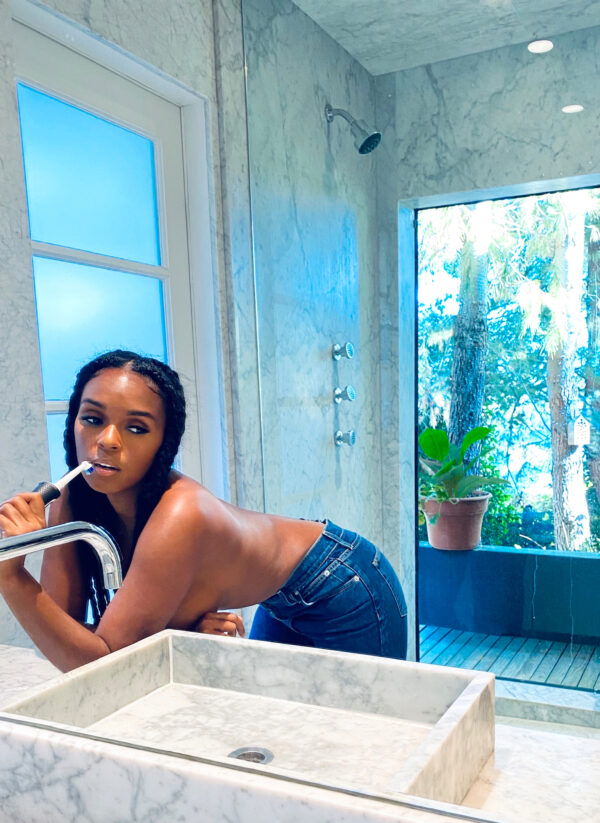
SELF-PORTRAITS BY JANELLE MONÁE
Janelle Monáe
Janelle Monáe has always felt ahead of her time. She’s an artist who seems made for every era she’s in. Janelle released her first music (a demo titled The Audition) in 2003. Three years later she formed a joint venture with her own label Wondaland Records and P. Diddy’s Bad Boy Records. She’s been nominated for eight Grammys but has maddeningly not won any even though her 2018 album Dirty Computer is considered a masterpiece by many critics and fans. In recent years, Janelle has stepped into acting with roles in Moonlight, Hidden Figures, and the Amazon series Homecoming. She’s also stepped more into herself. After a transformative skydiving experience, Janelle decided to open up publicly about her sexuality.
We spoke to Janelle in two conversations, one mere days before the murder of George Floyd in Minneapolis and then another time after the protests against his murder and broader police brutality had erupted in cities across the country. On both occasions we found her to be thoughtful, open, and fully engaged. She is “building and squadding up” and ready to work as hard as ever to demand justice for the thousands of black people killed by police each year. She was crystal clear about the message she wanted to share with the world during our conversation and during this Pride month: “All black lives matter.”
How are you doing? It’s so hard for me to answer that question, honestly. But I just ate, so that’s good. In general, I’m not in a good space. As many of my people are seeing what’s happening to our brothers and sisters, it’s just hard to shake it. It’s hard to shake the anger; it’s hard to shake being upset. It’s hard to get past the video footage and the evidence that police have killed our black brothers and sisters and nobody is charged or convicted. It’s hard to accept what police are giving us, what the administration is giving us, and what those in positions of power are giving us. And we’re not accepting it.
How have you been protesting over the last few weeks? I am in Los Angeles. I was down there when the tanks rolled out, when the National Guard were out. I have been helping out, passing out lunches for COVID relief, but in terms of my involvement, I have been very much involved in working with the activist Tamika D. Mallory and her movement Until Freedom. We are demanding that Greg Fischer, who is the mayor of Louisville, fire charge and convict the officers who killed Breonna Taylor. They still haven’t fired the officers for murdering Breonna. They had no reason to be at her house. That’s really where I have been putting most of my energy, speaking out for black women who have been murdered.
It’s a monumental time in history. Do you see any signs of hope? I think it’s going to take work, and I think that’s what I’m concerned about. Are white people willing to do the work, are they willing to do what it takes, to put in the hours and the sweat equity to dismantle the delusion of white supremacy that their ancestors have built, that their parents are trying to keep alive, that this current president is trying to keep alive? I think that black people have tried to stay hopeful. We’ve been marching alone, but the good thing I am seeing is that there are more white people out in the streets, out online, marching alongside us, which is cool, but I want to know what conversations are they having with their families? Why do we even need to say Black Lives Matter? Do we realize the whole concept is black people trying to fight to live? That is so absurd. So the conversation needs to be around, why do white people feel, in the first place, that black people don’t deserve the right to breath, or the right to equality, and that’s the issue that needs to be tackled. And that’s the disease that needs to be erased and killed. And the only people who are going to solve this, in the way that we are looking for, like long-term dismantling of white supremacy and racism, the only people who are going to solve that truthfully, are white people. So until I see that work being done, I’m not holding my breath.
What’s it like to work in the mainstream entertainment industry as a queer woman of color in 2020 compared to when you started in 2003? Here’s what I believe: I believe that I was sent from the future. I absolutely believe that, because even hearing you say 2003 for me, during that time, I felt ahead of what was happening. It always bothered me. It always made me feel like I had to stop time, like I had to figure out how to slow my ideas down. I always felt like people were not ready for an artist like myself. I still feel like that right now and it’s hard to digest. It’s like how do you put an octagon in a rectangle? And I say that humbly. I also say that knowing my potential and knowing the work that I put in and knowing that my team, who I’m so thankful for, have been my support system and talked me off ledges when I’ve just felt super alone.
I think that right now a lot of people are discovering new things. I just celebrated the 10th anniversary of The ArchAndroid and honestly what feels like the past for many is the future for us. By “us” I mean those who understand the power of telling stories through science fiction. Those who absolutely believe in the mythology of The ArchAndroid, because I’ve seen some of those things happening. Even right now I feel like I write too much science fiction to be dealing with this reality. It feels very close to the world that I warned people about and I don’t love that. I don’t love it. As a result, because we are here, I feel like I’m an artist on assignment. I feel like the universe moves me where I need to go. It’s never been about just recording songs. It’s been about realizing and maximizing the potential of an idea in its totality. Whether that’s doing an album and doing a film with it, or being in roles that are parallel with the things in the music that I’ve talked about since forever. So yes, I feel like I’m still an artist on assignment. I never know my impact until years later. I’m always looking forward and that can pose a challenge, and also a benefit.
What advice would you give to a young performer starting now in the music industry? Well I would say, remember that you are not your grandparents. You are not your parents. You are you! I just remember loving my family so much that it was crippling. By that, certain decisions I wanted to make, certain things I wanted to say, but because of maybe a strong religious background or because not wanting to embarrass the family, because maybe their values were different than mine, I held back. I’m not in that space anymore. I think that what you’ve seen thus far has been me chipping away and finding that freedom and creating work that can even inspire myself. Some of the things I wrote about were partly honest but also used as lyrics to inspire the storyteller. Being a storyteller and being a creative, and considering myself to be a free-ass motherfucker, it didn’t always align with the people I grew up trying to please. So don’t let that get in the way of your creativity.
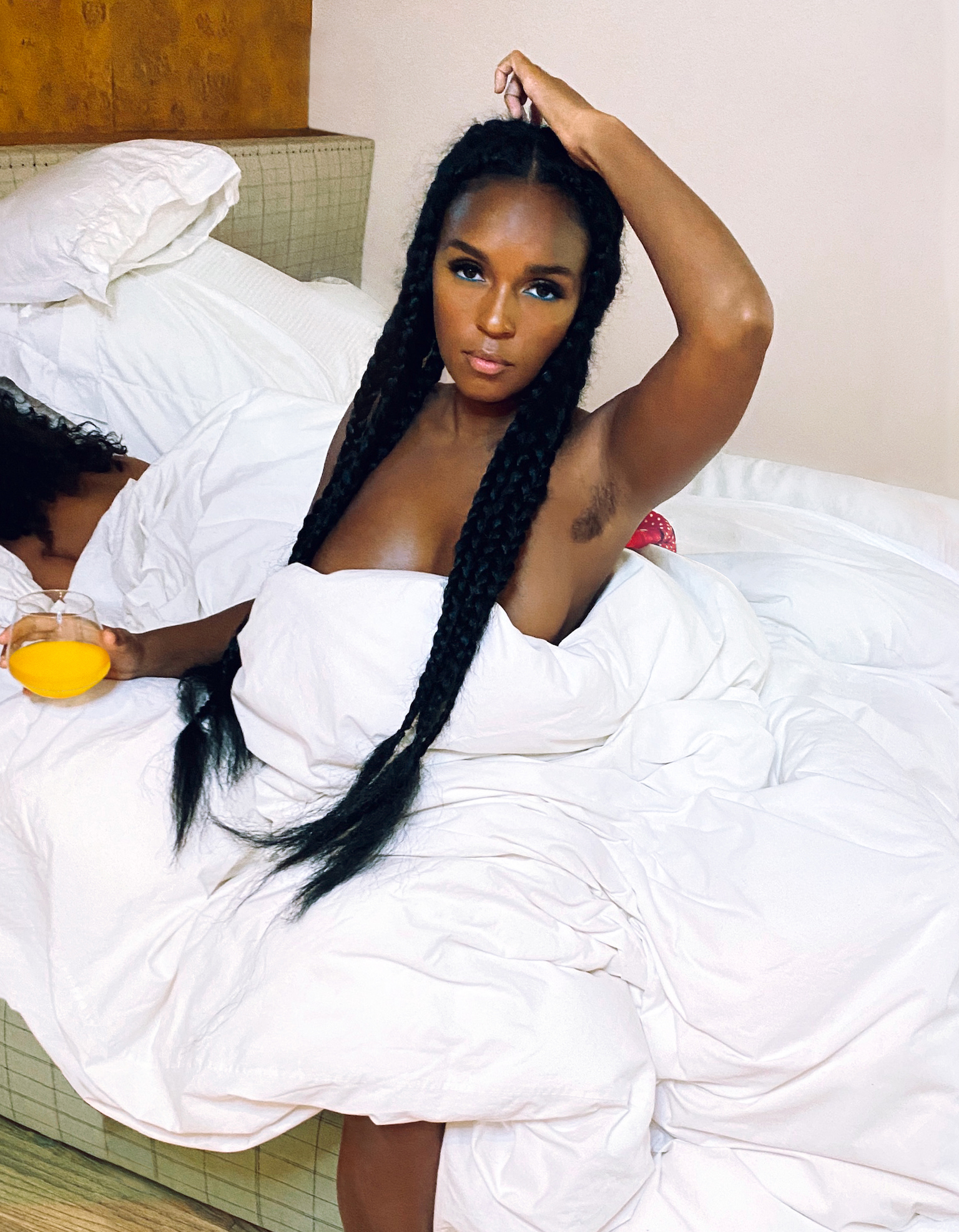
What was the thing that helped you let go of that need to please your family before yourself? I realized that it was time to jump and a lot of it had to do with when I went skydiving. I went skydiving 14,000 feet up in the air and that was after I did Dirty Computer — I had Dirty Computer, the concept, since before my first album, The ArchAndroid, but I hadn’t become the person yet who could write that album. So I didn’t write it until I started becoming that person. But I attribute a lot of it to therapy and a friend who I talked to and when I was talking about certain things, she asked me if I had ever considered that I may have abandonment issues. I said “you know what…” I was in denial about it. I mean I had all the love I needed to have. My dad, who is my best friend now and completely sober, was the person who because he had a drug addiction he was dealing with and he was in and out of prison and in and out of my life — he was the only person I ever felt had abandoned me, but I had so much love. I had my stepdad who was just like my dad and my mom who was just like my dad. I had 12 different aunties. I had 50 first cousins. I was loved! As I started to journal and I wrote down some things, I realized she was correct. I had buried some abandonment issues and as a result of that my need to feel accepted, especially by family was at an all time high. So I didn’t want to do anything to make me feel that pain that I’d buried of my father not showing up to pick me up because he had been in jail and I didn’t know about it. I never wanted to feel that pain again. What they say is that whatever you bury, it will grow.
There’s that quote, “you can’t heal what you don’t reveal.” I think it’s always so scary to hear that when you’re not ready to reveal. You know? Absolutely.
It’s like, “oh great okay, well what am I meant to do now? I’m not ready to reveal this pain.” But you have to have patience with yourself, to do these monumental things in your own time, and only when you’re ready. I’m skydiving now as a result of that. That was the thing that was holding me back. Like I was hinting at what I wanted to do, what I wanted to say and you can hear it throughout my work. That’s the great thing about art. Your art doesn’t reveal itself until sometimes years later. That’s the beauty of it to me, that it changes over time, that it means something different to you over time. You kind of get a chance to do this retrospective of yourself. Now I’m in a totally different place. Coming out and living proud is a difficult thing because I’m also a private person. You get into people wanting to know about your relationships and all of that and nobody asks to be famous. Shit, I didn’t ask to be famous, but because of my art and because I like connecting with people, it’s been a part of the process and game. It’s a part of the world that I live in. I had to be very careful of how I spoke about certain things. Also you want to be respected as a complete person. You know what I’m saying? You don’t always want to highlight one color. We’re not monoliths. You know? We have so much depth to us. We have so many things we want to say at different times. Some things we’ve already said. Some things we don’t feel like talking about. Some things are too painful to talk about. So that’s been the tightrope I’ve been walking.
When you were more open about yourself and your journey and sexuality, was the response you got from loved ones, or people you care about, surprising? Actually it was. The people who I thought would be more judgmental or turn their backs on me or abandon me, didn’t! No nuclear button was pressed, and in your mind, I don’t know how you identify, but for me, it’s kind of one of those things where you think about it so much, you’re always thinking about how am I going to talk to my mom about this, how am I gonna talk to my religious great-grandmother about this. You know all these people that prayed for me and loved me and had been there for me, my pastor, who is my first cousin—like how am I going to talk to all these people about this? Are they gonna get it? Are they going to abandon me? You think about it more. In your mind you’ve already made up stories about how they’re gonna respond, so it becomes anxiety fueled by you. It becomes depressing, the thought of it and you don’t want to deal with it. Part of my process was making sure that my childhood self, that people had come to love and know, showed up and told them where they were at the time now. About how evolved my childhood self is. I’m still the same child that loves you and cares about you; however, these are new things I’ve discovered about myself. In fact, I’ve always known but did not feel the support in discussing.
When we talk about that saying, that you can’t heal what you don’t reveal, it feels like America is revealing a lot about itself right now. Do you think this revelation of the centuries of pain that have been inflicted on black people, will have the power to wake people up and lead to some healing? Are you familiar with what has happened to the indigenous people of Australia? This is an international issue. I think if you are presenting as white, then you are privileged and there’s some work you are going to have to do to really dismantle the systems that were never built for all of us. They were built for white people. And what we’re saying right now, what I’m saying right now is I don’t want the police force as is. I’m for defunding. I’m for putting the billions we put into the police, back into our communities. If you want to show us that you value us, that we belong in the same way that you have been okay with defunding health care for us, defunding the arts for us, defunding education for us, defund the system that’s killing us. Defund the police, and put that money into other areas that allow us to rebuild. We tried to build Black Wall Street in Oklahoma and the police burned it down. It’s like folks say “well, pull yourself up by your bootstraps.” But we were never given the boots. It’s not enough for companies to put out statements saying Black Lives Matter. If you truly believe that then you do the work to dismantle the systems. Call out other white people and do the real work to understand how we got here, and listen as well to many black voices and take it upon yourself to put money into black organizations who are doing the work. I think we need real progress in those areas.
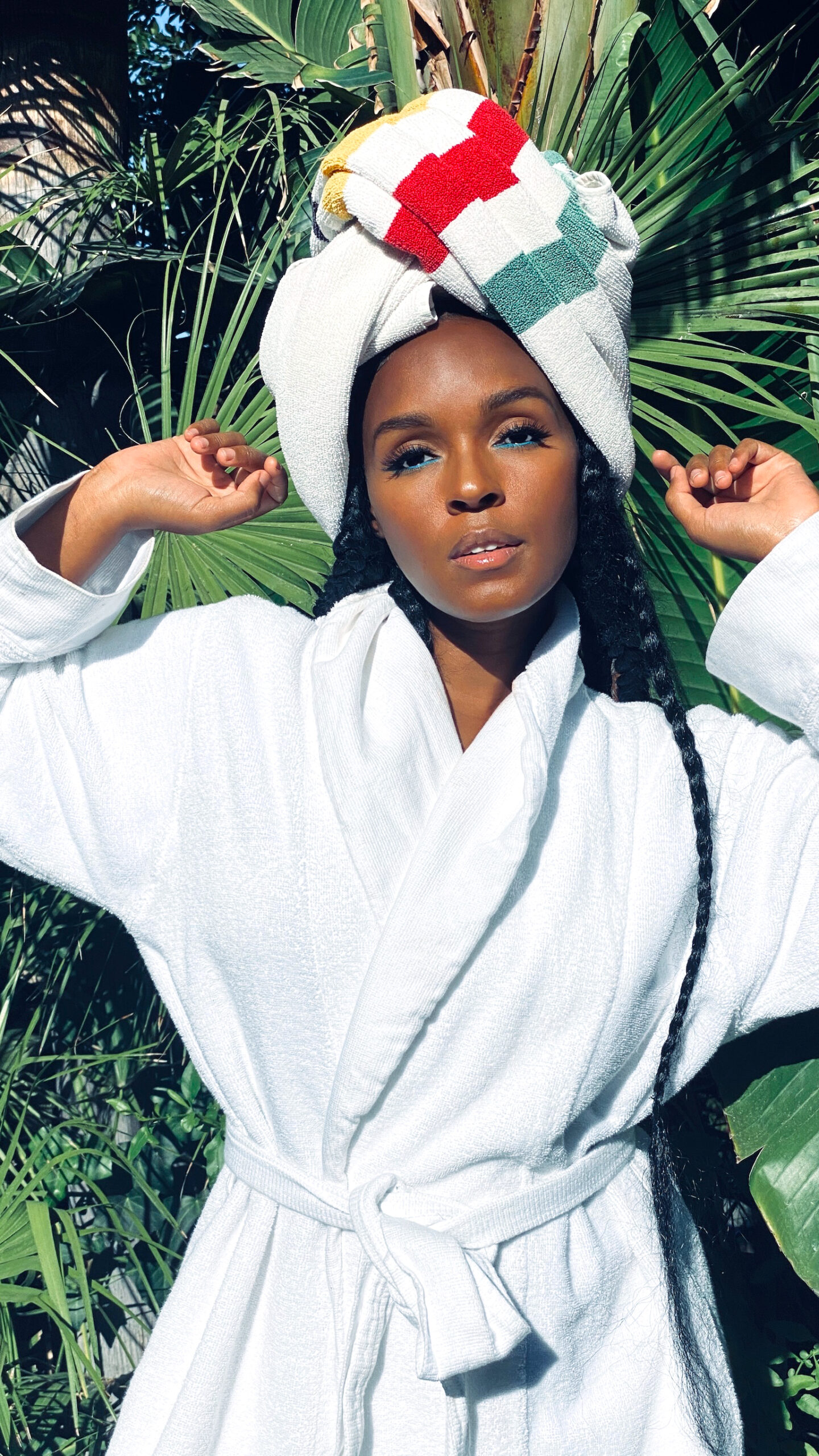
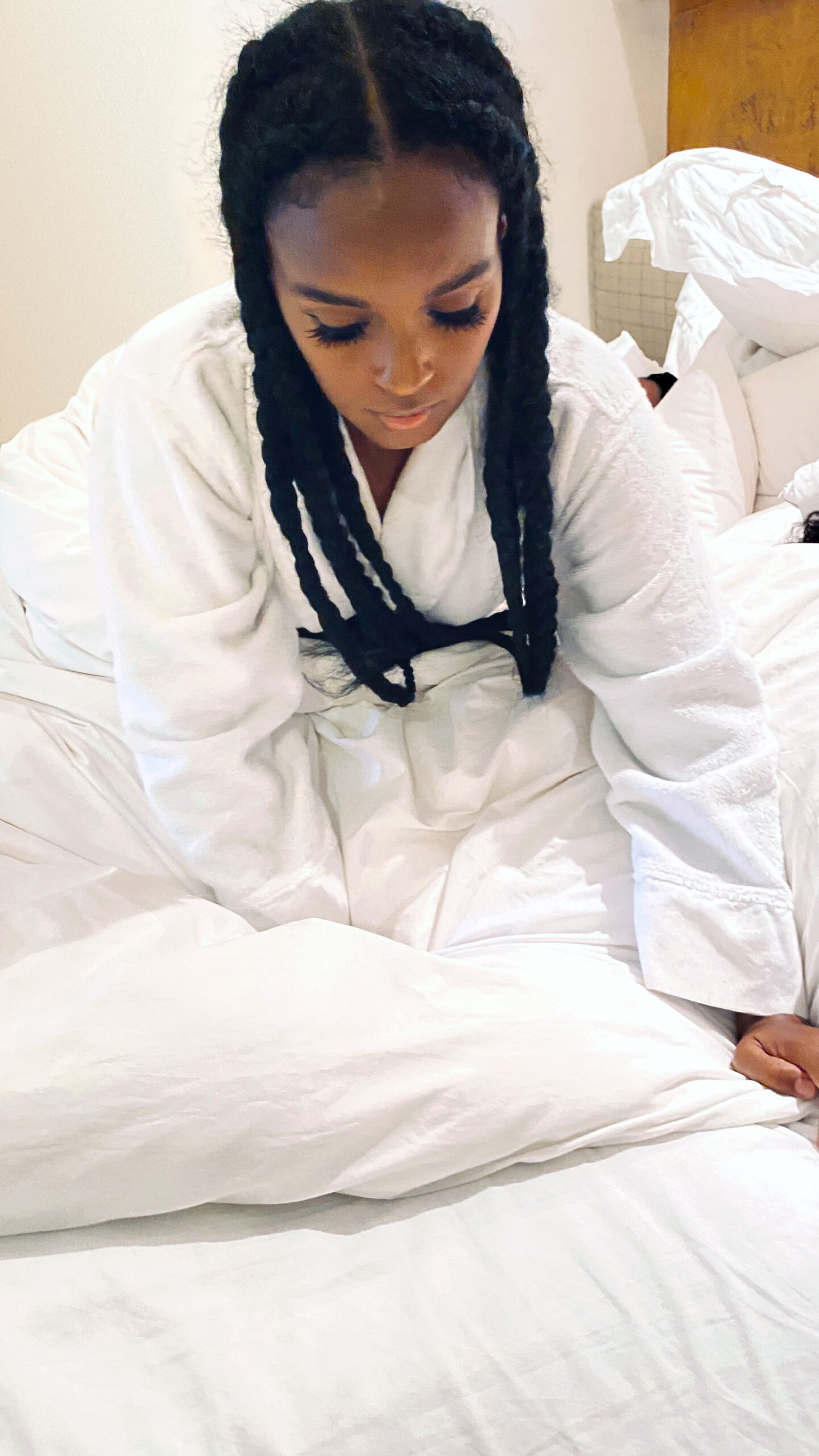
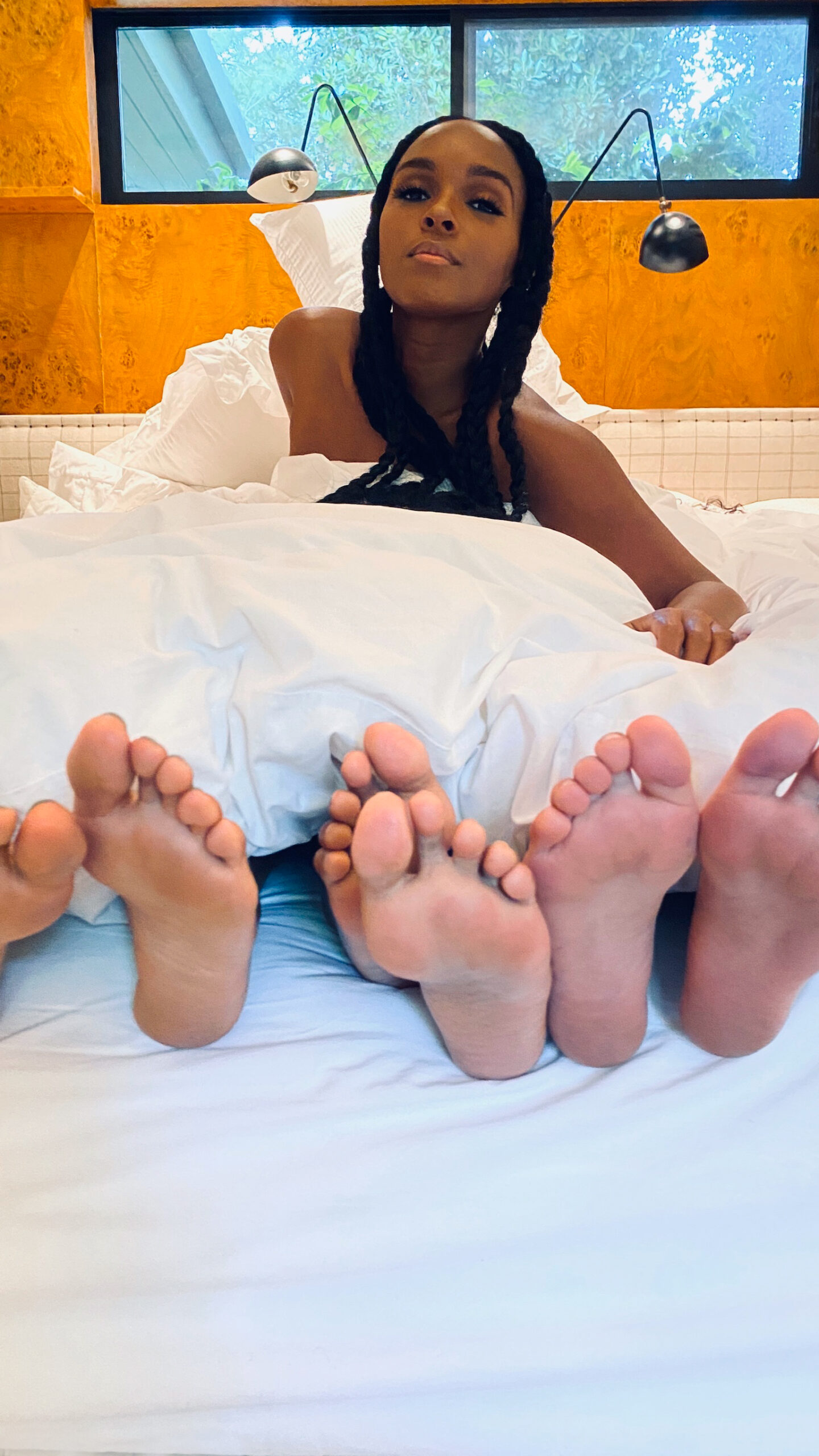
Did you have any mentors or role models you looked to during this phase of growth? Sure, Prince was definitely one of them. I think he’s a good example of an artist who started off one way and we got a chance to watch him transform. I consider myself a morpher and I feel like I’m on an assignment and some things everybody won’t get or understand. I think there’s something about his career that people didn’t necessarily get. How could he be so sexually liberated and provocative in his words and in his lyrics and later in life say “I don’t need to curse.” There’s something you have to respect about a person like that. At least you understand that they have principles, and they make their rules, and no matter what you think about them, they believe in themselves. They believe they’re convicted. One of the quotes that helped me is the quote from Little Richard, “I’m not conceited, I’m convicted.” I try to be convicted in my ideas in that same way.
What drew you to your role in Moonlight? I just thought it was so specific and reminiscent of so many young boys I knew growing up and cousins that I had, and it was a great way to show allyship by just listening. By just listening, we can save somebody’s life who otherwise could’ve been thinking about committing suicide because they were not socially accepted for how they identified. At first I wanted to have this big sci-fi franchise, I wanted to have that be my first role, but I’m so thankful that it wasn’t. I’m so thankful that it was Moonlight, a film that centers around the black, young, poor gay experience because that’s one that’s not highlighted often enough. All I could think about was the millions of people who could see that film and understand our culture better and understand what’s going on in our neighborhoods a little better.
What was the experience like at the Academy Awards when La La Land was accidentally announced as the winner? Man, I still haven’t healed over that. I felt like we were in an alternate reality, because we couldn’t celebrate how we wanted to. Ultimately we ended up doing it, but it took a while because it was such a high and such a low and such a high because you felt like you were taking something from someone, but it didn’t actually belong to them. This might be controversial, but I loved seeing this all-black cast coming on stage and you saw this predominantly all-white cast have to get off and move. Watching it later on in life, it was something that made me chuckle especially when I think about the amount of times black performers and black directors did not get the respect I feel like they’ve deserved at the Oscars.
You worked so much last year, doing your series Homecoming plus a tour and another film. How are you finding this time of winding down? There are moments I’m peaceful and there are moments that I’m crying and in tears thinking about what’s going on in the rest of the world. When am I gonna see my mom and hug my niece who is almost six months old now? There are times of great fear, and I fear the path this country is going down especially with this current administration and the lies that are being told. The manipulation. This administration is putting capitalism and greed and holding power in front of taking care of the health and the well-being of the American people. That is dangerous. It was dangerous to elect this man. You know having someone uneducated and someone ignorant and someone who fired the pandemic team that President Obama assembled has been dangerous. My biggest fear is that we won’t show up and vote because of this pandemic. We just have to be vigilant about the abuser of power in the White House and all of those who have conspired with him and supported this agenda. We have to do our part and be vigilant about getting them out of there. I don’t think there’s such a thing as a perfect candidate, but we can surely do better than this.
What drew you to your character in Homecoming and how did you prepare for the role? Jackie is a very complex character. She wakes up in the middle of a boat with no clue how she got there or who she is. We’re on a journey with her, a journey of self-discovery. A journey of her discovering her identity. A few films that I watched to prepare for this role were, one of my favorite films, Memento, that deals with memory loss. This show is a psychological thriller, so I also watched the Bourne Identity films. I watched this film with Nicole Kidman, Before I Go to Sleep. I had to do a lot of research on amnesia and short-term and long-term memory loss. I didn’t want to play Jackie one-note where she was walking around disillusioned or disoriented. I wanted you to also see the side of her frustration like with anyone who forgets their thoughts or the frustration one would have with themselves when they can’t remember things. Also you have to have your guard up because you don’t know who could take advantage of you. Or when it comes to losing memory due to trauma, you don’t know if that person is a suspect. This character had her guard up but she had to be a great listener. I will say that this character is a chameleon and it was so fun to dive into the many different sides of her. And to have the baton passed to me from Julia Roberts who starred in the first season was a high honor.
Has this time brought you closer to your family and friends? Yeah as black people we’re sticking together, and behind the scenes, there’s a lot of work. We’re building and squadding up. So many people in the industry have reached out to me to partner up on initiatives that they’re doing. I have initiatives that I’m getting off the ground. Black people are building. We’ve always tried our best to be there for one another, because as much as white people want to help, there is a certain level of comfort in just talking to our people. There’s emotional labor in always having to explain things. So I’m like if you really want to learn find those activists online: Until Freedom, Tamika D. Mallory; Black Lives Matter, Patrisse Cullors. There’s lots of information out there, and pay them for their labor, pay them for their work. Because there’s a lot of emotional work that goes into trying to explain why, when, and how. So I think what we’re calling for is accountability for white people at another level and you know the movement is going to happen. And I will say this is a moment, depending on everybody’s reaction to it, we can dismantle these structures. It won’t happen overnight but this is a moment where people’s hearts are open, people’s minds are ready to receive information, people are ready to give, so we just have to, we have to seize the moment.
When I’m talking and building within my community, I’m making sure that we are pushing and screaming at the top of our lungs that all black lives matter. It’s pride month. There are people like Tony McDade who lost their lives, Nina Pop. There are a lot of black and brown people in the LGBTQI community who are killed due to police violence and I want, more than ever, to make sure that when you hear black lives, it doesn’t mean some black lives, or black cis men’s lives or black cis women’s lives. I’m speaking to encourage people to say all black lives matter. To make sure that people know we are not a monolith. We are so many things and all of our lives absolutely matter and should be given the attention and be handled with care.
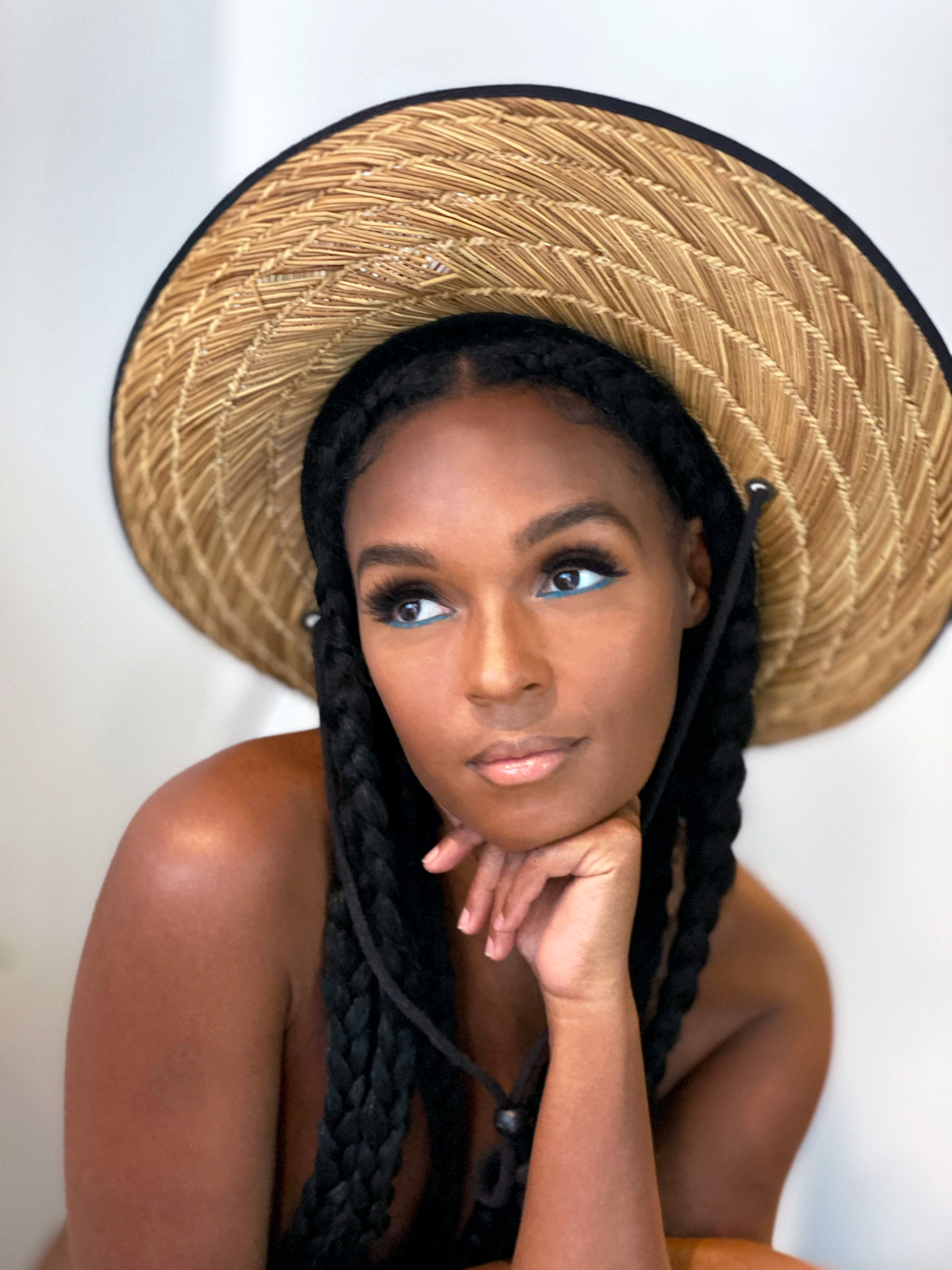
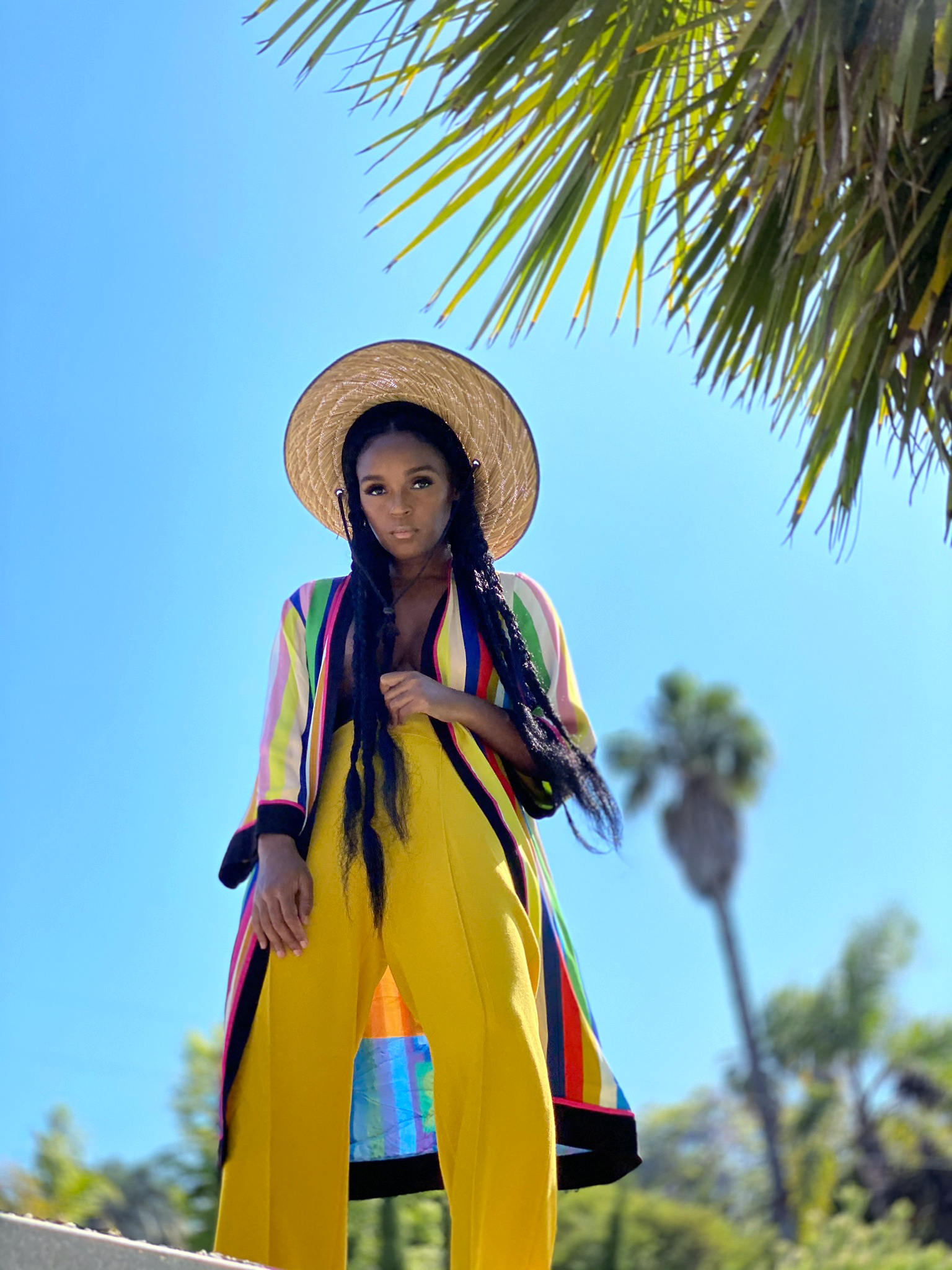
Styling by Alexandra Mandlekorn, Hair by Nikki Nelms, Make-up by Jessica Smalls.
This interview has been condensed for online. To read the full interview, and to see the rest of the images pre-order a copy of GAYLETTER Issue 12 here.